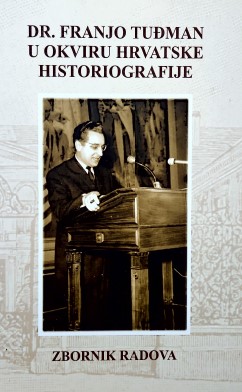FRANJO TUĐMAN I SAMOODREĐENJE NARODA
FRANJO TUĐMAN AND THE SELF-DETERMINATION OF PEOPLES
Author(s): Albert Bing
Subject(s): Political history, Government/Political systems, Political behavior, Post-War period (1950 - 1989), Transformation Period (1990 - 2010), History of Communism, Politics of History/Memory
Published by: Hrvatski institut za povijest
Keywords: Franjo Tuđman; self-determination of peoples; disintegration of Yugoslavia; establishment of Croatian state;
Summary/Abstract: Franjo Tuđman, the first president of the Croatian independent state, was the central figure of Croatian politics in the 1990s. His personal views on politics and his intellectual preoccupations, characterized by strong influences of historicism (as defined by K. Popper), had the decisive influence on all important aspects of Croatian politics and social life in the period of the disintegration of Yugoslavia and the constitution of the Croatian state. In this historical context, the process of Croatia’s positioning in the international community was closely tied with the problem of articulating the legitimacy and legality of Croatian demands for national independence. The problem of self-determination of peoples surfaced in the argumentation of Croatia’s position and the position of other successors of the Socialist Federal Republic of Yugoslavia. As it had been the case at the time of Yugoslavia’s establishment, the self-determination of peoples became the subject of political, legal, historical, and other debates in which different understandings and interpretations of this principle surfaced. This article considers and analyzes individual aspects of Tuđman’s views and of his political articulation of the idea about the self-determination of peoples in this context. The article is a part of a broader study that discusses the self-determination of peoples in the context of the establishment and disintegration of the Yugoslav state.
- Page Range: 79-87
- Page Count: 9
- Publication Year: 2011
- Language: Croatian
- Content File-PDF

